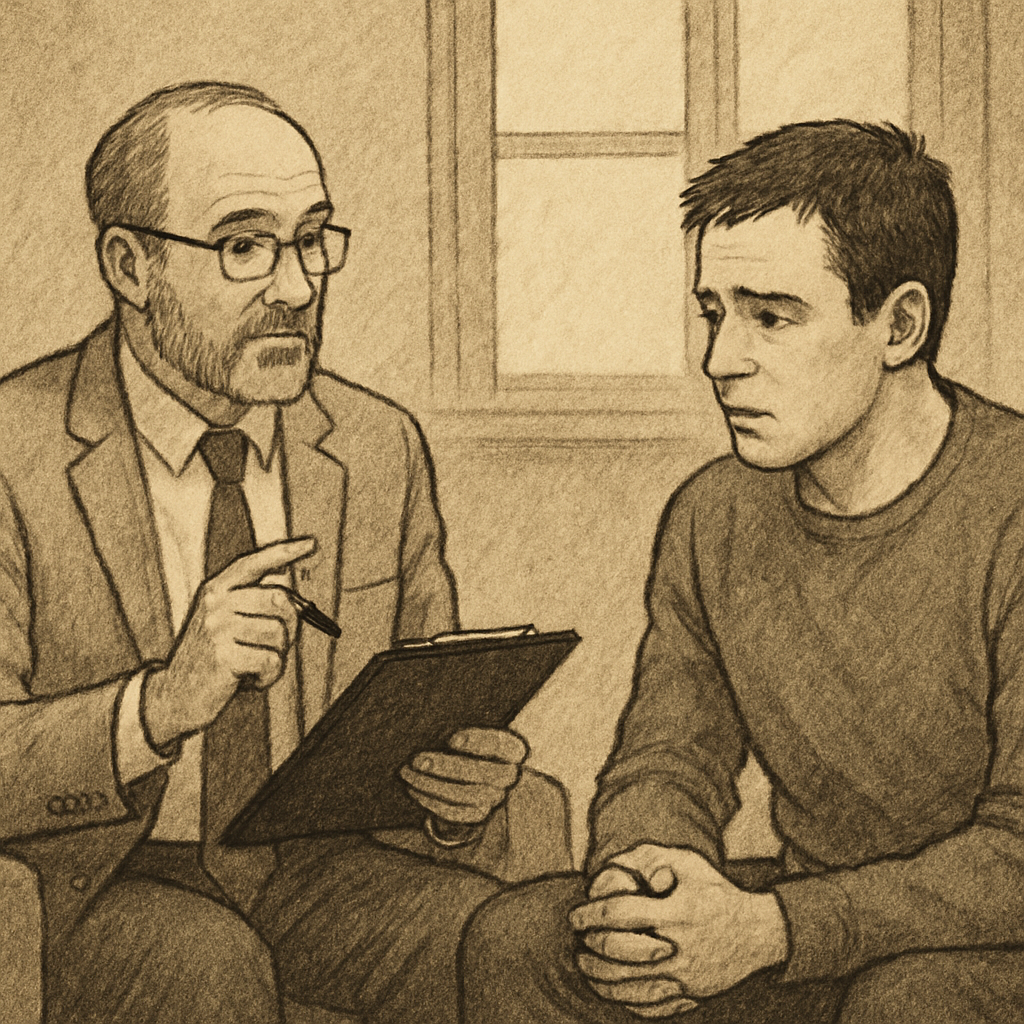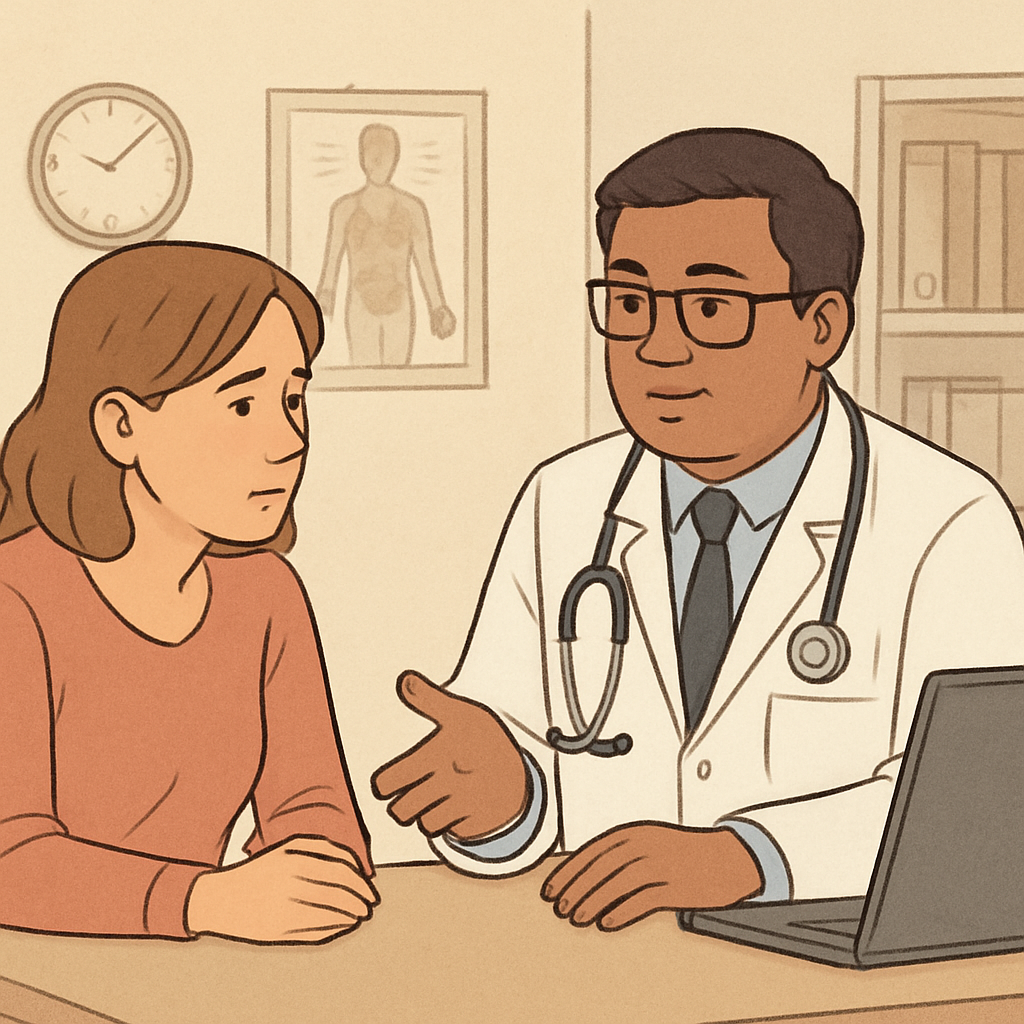September 26, 2025
ind out if you need a referral for a psychiatrist. Learn how insurance, emergency situations, and healthcare systems affect access to mental health care.
Navigating mental health care can be daunting. One common question is whether you need a referral to see a psychiatrist. Understanding this process is crucial for accessing the right care.
Referrals often depend on your insurance plan and healthcare system. Some plans require them, while others allow direct access. Knowing the specifics of your plan can save time and stress.
Referrals can streamline finding the right psychiatrist. They ensure continuity of care and better coordination between healthcare providers. In some cases, they might even expedite appointment scheduling.
However, not all situations require a referral. Emergency cases or certain clinics may allow direct access. Understanding when and why referrals are needed empowers you in your mental health journey.
Psychiatrists are medical doctors who specialize in mental health. They diagnose and treat mental illnesses with a variety of methods. Their expertise includes both psychotherapy and medication management.
These professionals can treat a range of conditions. Common issues include depression, anxiety disorders, and schizophrenia. They also handle more complex psychiatric cases requiring medication management.
The treatment provided by a psychiatrist involves several steps:
Psychiatrists often work in various settings. These include hospitals, private practices, and mental health clinics. This versatility allows them to meet the diverse needs of patients.

The need for a referral often depends on your health insurance plan. Some insurance companies require a referral to see a psychiatrist. This is commonly seen in health maintenance organizations (HMOs) and certain PPO plans.
Checking your specific policy details is crucial. It helps to know whether a referral is needed. Often, this information is available in the mental health section of your policy documents.
Having a referral can simplify finding the right psychiatrist. Primary care doctors often guide you to the right specialist. They ensure the psychiatrist matches your specific needs and condition.
In some cases, you might not need a referral. For instance, certain insurance plans allow direct access. This option is more common with private insurance or employer-sponsored plans.
Here's why referrals can be important:
Understanding whether you need a referral is essential. It allows smoother access to psychiatric care. Clarifying this requirement can also prevent unexpected costs.
A referral is often a prerequisite due to health insurance stipulations. Insurance plans like HMOs typically require referrals for specialist visits, including psychiatry. Without a referral, insurance might not cover the cost, leading to out-of-pocket expenses.
Additionally, referrals are essential when you're seeking specialized mental health care. This ensures that you connect with a psychiatrist who aligns with your mental health needs. Primary care doctors can guide you to specialists equipped to handle specific conditions.
In some healthcare systems, referrals help manage and prioritize resources. Referrals ensure that psychiatric care is reserved for those who need specialized intervention. They act as a filter, allowing efficient allocation of healthcare services.
Certain psychiatrists also require referrals before accepting new patients. This helps them manage their caseload and ensure they offer appropriate care. It's a safeguard to maintain quality service and patient care.
Consider the following scenarios where referrals are typically required:
Knowing when a referral is necessary helps streamline your journey towards mental health support. Always check with both your primary care provider and insurance to ensure compliance with referral requirements.
In some scenarios, you might not need a referral to see a psychiatrist. Many private healthcare settings allow direct access to psychiatrists. This is more common when individuals opt for self-pay services.
Emergency situations present another exception. In urgent cases where immediate psychiatric attention is required, referrals are typically bypassed to prioritize care. Your health comes first in emergencies.
Certain mental health clinics offer self-referral options. These facilities often focus on expanding access to care by allowing patients to bypass traditional referral pathways. This makes psychiatric services more accessible to those in need.
Here are situations where you might not need a referral:
By understanding these contexts, accessing the right care when needed becomes easier and less cumbersome.
Obtaining a referral for a psychiatrist often starts with your primary care physician. They can assess your mental health needs and recommend a psychiatrist who fits your specific situation. A referral from a doctor can streamline the process.
If you don't have a primary care physician, consider visiting a local health clinic. Such clinics can provide the necessary evaluations and might offer referrals to specialist services. They often have networks to help patients connect with mental health professionals.
You can also contact your insurance provider. Many insurance companies offer assistance in finding in-network psychiatrists. They can clarify if a referral is needed for coverage, helping you navigate insurance requirements more smoothly.
Some mental health services allow direct contact for an initial assessment. Following this, they might offer referral assistance if required. These assessments help determine the appropriate care path.
Here’s a list to guide you:
By following these steps, securing a referral becomes less daunting.

Understanding your insurance plan is key when seeking psychiatric care. Many insurance providers have specific requirements regarding referrals to specialists like psychiatrists. Knowing these requirements can save you from unexpected out-of-pocket costs.
Most insurance plans require a referral from a primary care provider to see a psychiatrist. This step is often necessary for insurance reimbursement. A referral helps ensure that you access covered services within your plan's network.
Some plans, however, offer direct access to psychiatrists without needing a referral. Private insurance policies often provide this flexibility, though it's important to confirm this with your provider. Contact your insurer for detailed policy information to avoid surprises.
Ensure you know the following:
Checking these details with your insurance helps streamline your mental health journey.
Not having a primary care physician can be challenging when you need a psychiatrist referral. However, there are still options available to you. Many community health clinics offer mental health services that can assist you.
Community health centers can provide the necessary referral services. They often have integrated care teams ready to assess your needs. This can streamline your access to mental health care even without a designated doctor.
Additionally, some mental health clinics allow self-referrals. This option bypasses the need for a primary care physician entirely. Be sure to:
These steps can help you find a path to psychiatric care without a primary care provider.
Telepsychiatry is revolutionizing mental health care with its convenience and accessibility. You can see a psychiatrist online, often with a quicker process. This approach may have different referral needs than traditional visits.
Some telepsychiatry services allow direct appointments without referrals. This can fast-track your access to care and is ideal for those without immediate referral options. Always verify the requirements for each service.
When opting for telepsychiatry, consider these points:

by Icons8 Team (https://unsplash.com/@icons8)
Using telepsychiatry can be a practical choice for modern mental health needs.
Obtaining a referral for a psychiatrist can provide several advantages. Referrals often help with insurance coverage, ensuring costs are managed. This process may also facilitate faster appointment scheduling.
A referral can act as a guide, aligning your specific needs with the right psychiatric care. This ensures that the psychiatrist is well-prepared, having insights into your medical history before your visit.
Consider these benefits of a referral:
Ultimately, a referral fosters a smoother path to receive the mental health care you need, ensuring you are on the right track to recovery.
Many people wonder if a referral is essential. Generally, the need for a referral depends on your insurance plan and location.
Another concern is the time it takes to get a referral. This can vary depending on your primary care physician's schedule.
Here are some commonly asked questions:
These questions highlight common issues faced by those navigating the mental health system. Understanding these can help streamline your journey.
Getting a referral can sometimes feel overwhelming. It helps to be proactive and organized. Start by understanding your insurance requirements and your health care network.
Here are some practical tips:
Being informed saves time and effort. A clear grasp of the steps can make the process smoother. Remember, communication with your healthcare providers is key.
Understanding whether you need a referral can simplify accessing mental health care. Insurance requirements often dictate the need for a referral. Checking your coverage is crucial to understanding this need.
There are situations where you can see a psychiatrist without one. Emergency care and some clinics allow direct appointments. Knowing these exceptions can help streamline your care.
Remember these key points:
Referrals can guide you to appropriate care and services. Be proactive and informed to enhance your mental health journey.

We're now accepting new patients
